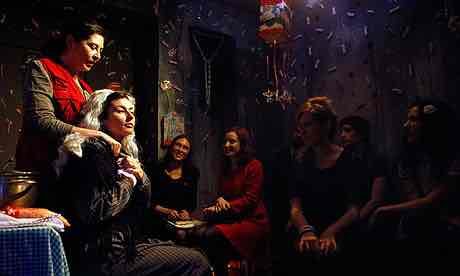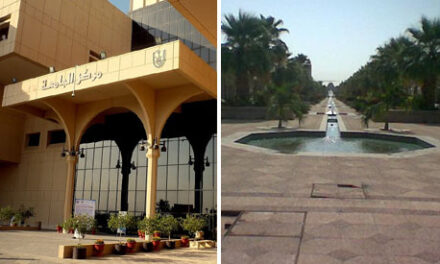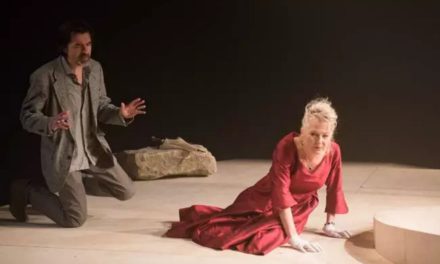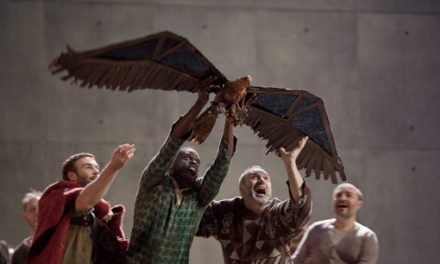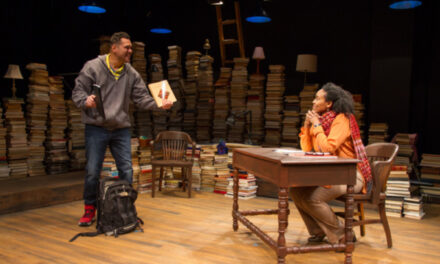On a Saturday night, Madrid’s Microtheatre performs 54 mini-shows back to back in the theatre’s five rooms often sell-out crowds. This is the face of the new Spain, post-crisis.
Breaking through the bar-room chatter, a voice calls audience members downstairs, to the basement of Madrid’s “Microtheatre”.
Formerly a butcher’s shop, this theatre bar in a formerly undesirable neighbourhood of the Spanish capital now uses its tiny underground chambers for a novel form of budget entertainment.
Paying four euros (just over $5) each — a fraction of the cost of a typical theatre ticket — audiences of about a dozen cram into a room a few metres (yards) square and sit close up to the actors or lean against the wall to watch a 15-minute show.
The Microtheatre has launched three years ago, after the start of the five-year economic crisis which has hit spending hard, not least on pleasures such as the theatre.
On a Saturday night, the 54 mini-shows performed back to back in the theatre’s five rooms often sell-out, says the company’s manager, Veronica Larios, 35.
“A lot of people are unemployed, a lot of people have had their salaries cut, so people have less spending power in general now in Spain,” she says.
“This is a form that lets you spend time in the theatre, and spend just as much as you want to.”
On a recent autumn evening, punters could choose between shows as diverse as a comedy set in a 1960s Spanish kitchen, or a dark drama set in a torture chamber, where a young woman lay naked and weeping a few inches from the spectators.
“It is a very intense experience,” said one member of the audience, Belen Garcia, a 36-year-old economist, on her first ever visit to the Microtheatre.
“You see the actors right in front of you. If you stretched out your arm you could almost touch them.”
Five years of economic turmoil in Spain have had a major impact on theatres, which were already in bad shape, driving theatres to seek new ways of drawing a crowd.
One in four Spanish workers is jobless and attendance at shows plunged by nearly a third between 2008 and 2012.
A further blow was struck last year when the government raised the sales tax on tickets for shows from eight to 21 percent.
“The impact has been brutal,” says Jose Martret, 41, an actor and one of the men behind another miniature theatre project in Madrid, La Casa de la Portera.
In the Bohemian district of La Latina, this venue houses audiences of 25 for shows running an hour or more for up to 20 euros a time.
The novelty here is that the plays are performed not in a regular theatre but in an old ground-floor apartment — and that the audiences have kept coming.
Tonight its walls are decked out with hunting trophies and gilded mirrors, with thick red carpets and a small altar to the Virgin Mary: props for a production of Anton Chekhov’s Ivanov, a classic rarely staged in Spain.
[getty src=”158457925″ width=”594″ height=”395″]
This post was written by the author in their personal capacity.The opinions expressed in this article are the author’s own and do not reflect the view of The Theatre Times, their staff or collaborators.
This post was written by Beatriz Cabur.
The views expressed here belong to the author and do not necessarily reflect our views and opinions.

